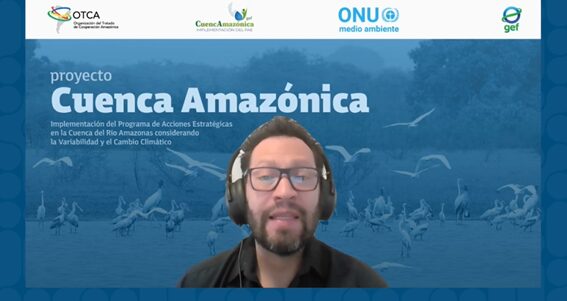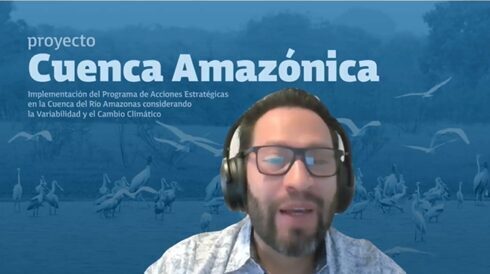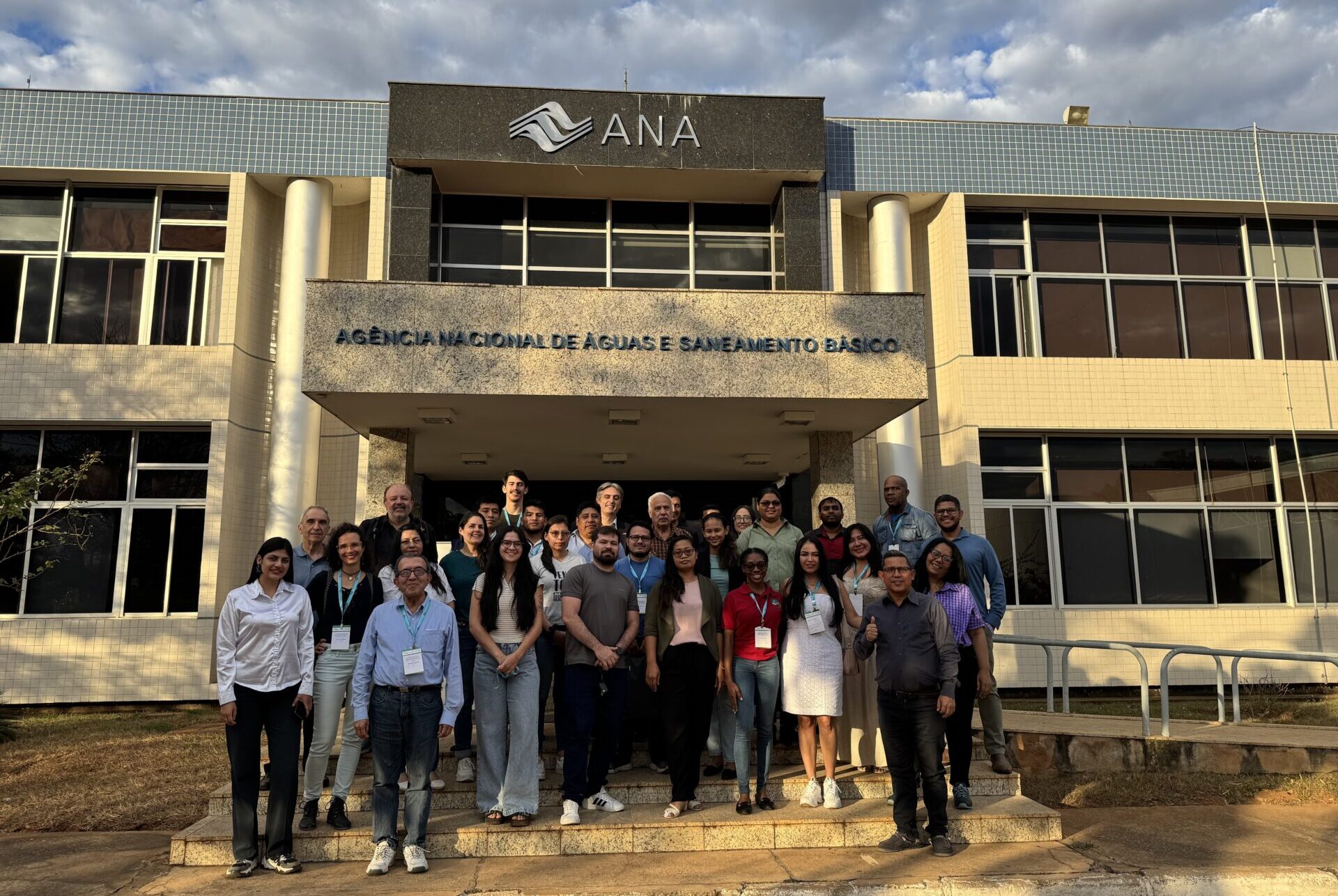Index
Topics
Share
The Amazon Basin Project participated in two important panels during World Water Week, held in Stockholm from August 24 to 28. Represented by Fernando Cisneros, technical specialist in Integrated Water Resources Management (IWRM), the Project contributed to the debate on the links between forests, water, and agriculture, as well as highlighting the importance of regional governance and cross-border cooperation among member countries of the Amazon Cooperation Treaty Organization (ACTO) for water security in the Amazon.
Transboundary water governance
In the session dedicated to shared water management in Latin America and the Caribbean, promoted by the Inter-American Development Bank (IDB), the Japan International Cooperation Agency (JICA), the Organization of American States (OAS), the United Nations Economic Commission for Europe (UNECE), ACTO, and GEF-IW: LEARN, Cisneros highlighted that water management acts as a coordinating axis in the Amazon, allowing progress to be made on integrated responses that combine ecosystem conservation, climate adaptation, public health, and the rights of indigenous peoples.
He highlighted the importance of regional instruments such as the Transboundary Diagnostic Analysis (TDA) and the Strategic Action Program (SAP), which guide Amazonian cooperation, as well as the creation of the Amazonian Network of Water Authorities (RADA) in 2024. As a new permanent regional mechanism, RADA is working on the development of a White Paper for Integrated Water Resources Management (IWRM), which should consolidate principles, monitoring protocols, and institutional strengthening strategies, with broad participation from local communities and indigenous peoples.
Another point highlighted by Cisneros was the need to integrate climate adaptation into the management of key ecosystems, such as glaciers, moorlands, and wetlands. In this process, he presented the Amazon Regional Observatory (ARO), an ACTO initiative that seeks to consolidate and democratize access to real-time hydrological, socioeconomic, and climate data, providing essential information for strategic decision-making.
- Session “The future of shared ecosystems in water management in Latin America and the Caribbean.”
- Participation of Fernando Cisneros, technical specialist in IWRM for the Amazon Basin Project
Forests, water, and agriculture: integration for resilience
In the panel discussion Forests and Climate: Benefits of Forests for Water and Agriculture, organized by the Food and Agriculture Organization of the United Nations (FAO), the Swedish University of Agricultural Sciences (SLU), the Stockholm Environment Institute (SEI), and the Swedish International Agriculture Network Initiative (SIANI), Cisneros highlighted that science has already demonstrated the benefits of forests for agriculture and water security, but that the great challenge lies in coordination between sectors: water, energy, forests, the environment, and agriculture.
According to Cisneros, it is necessary to invest in analytical tools, quality data, and technical training to support joint decisions and strengthen the Amazon’s resilience to climate change. “Protecting forests, improving agricultural productivity, and diversifying the energy matrix makes the entire system more resilient,” he said.
- Panel “Fresh forests: benefits of forests for water and agriculture”
- Participation of Fernando Cisneros, technical specialist in IWRM for the Amazon Basin Project
Cooperation for the future of water in the Amazon
Throughout its participation in the two panels, the Amazon Basin Project reinforced the message that integrated water management, coordinated with other sectors and supported by science, data, and regional cooperation, is essential to strengthen the Amazon’s resilience to climate change.
Coordinated action among ACTO member countries represents not only a step forward for water governance in the region, but also a commitment to sustainable development, water security, and the protection of Amazonian peoples and ecosystems.
Related news
Post
3 de November de 2025
The Amazon Cooperation Treaty Organization (ACTO) announces a call for proposals for specialized technical services from a Specialist in Climate [...]
Post
16 de September de 2025
The Amazon Basin Project has launched an educational video that will be used in community workshops to raise awareness about [...]
Post
8 de September de 2025
The Amazon Basin Project (ACTA/UNEP/GEF) promoted the Regional Course on Space Hydrology: Monitoring river levels and sediment flows by satellite, [...]








